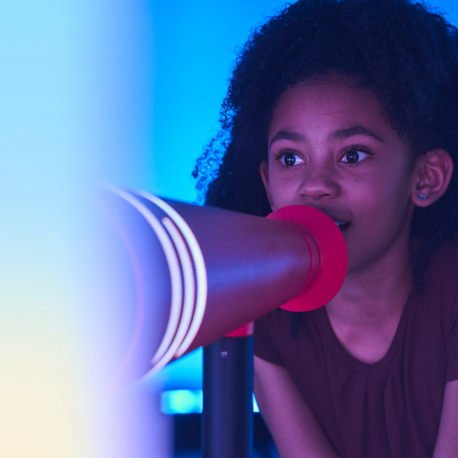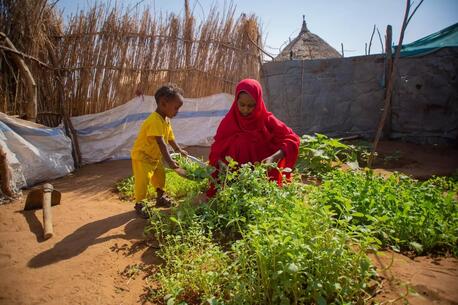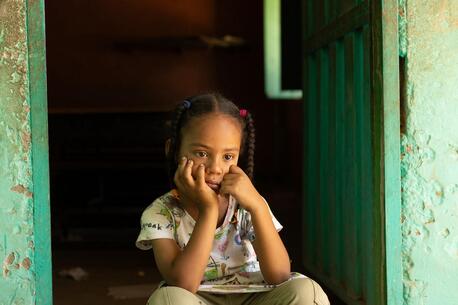Protecting Children's Rights in a Digital World
We all have our part to play in making the internet a better place. Here are some helpful tips for families on how to safeguard privacy — while still encouraging free expression.
With at least three quarters of American teenagers owning a smart phone — and nine out of 10 of them spending time online every single day — two rights have become hot-button issues: privacy and free expression. As longtime supporters of children's rights, both UNICEF and UNICEF USA encourage young people to speak out on issues that matter to them.
The challenge is finding the right balance. How can parents make sure kids stay protected — while also remaining empowered?
The challenge is finding the right balance. How can parents make sure kids stay protected — while also remaining empowered?
With UNICEF and UNICEF USA's industry toolkit in mind — offering resources to online service providers, game and toy brands, mobile operators and device manufacturers — on how best to protect and empower children — we'd like to offer some helpful guidelines for families looking to be proactive on these important matters, too.
A great first step is for parents to discuss with their children and teens age-appropriate ways of engaging with others online; to encourage exploration and creativity and opportunities to advocate on issues that affect or inspire them. Protecting their privacy while enabling this self-expression is key to keeping them safe.
A great first step is for parents to discuss with their children and teens age-appropriate ways of engaging with others online.
There are two sides to the privacy coin. Personal privacy refers to your online reputation — the personal information you may be sharing and making available for public consumption, whether you mean to or not. Consumer privacy relates to the data a website or company might be collecting about you during an online transaction.
Common Sense Media offers some sound advice that UNICEF USA recommends parents review with their kids:

Ciara, 16, and Conor, 17, of Hastings-on-Hudson, N.Y., are typical American teens: They both own a smart phone and spend hours online every day. ©Maryanne Buechner
- Never give out your personal information like a home address, name of your school, birthdate or phone number, or share your passwords with anyone except maybe your parents.
- Review and set up privacy settings on any new device, and any time you download an app or sign up for an account on a social media platform or website. Turn off your phone's location sharing. Don't grant access to your contacts or other data, or allow apps or websites to post to social media channels on your behalf.
- Don't download anything from an unknown source without consulting with mom or dad or another trusted adult. Files can contain a virus or some other kind of malware that can leave your personal information exposed.
There are ways parents can help kids stay safe online — without clipping their wings. ©Maryanne Buechner
Some other good safety rules to go over with children, especially those who are new to the digital world:
- Be careful about who you allow to follow your Instagram and other social media accounts. Only Friend people you know and trust.
- Remember that once you post something, it's out there; deleting the original comment or photo does not delete the shares or reposts. Even Snapchats can be saved as screenshots and forwarded.
- If you receive an unfriendly or threatening message, report it.
- Never send photos of yourself to strangers.
- Be wary of strangers who initiate contact online asking personal questions.
Our job is to mitigate the harms and expand the opportunities digital technology makes possible.
"The Internet ... reflect[s] and amplif[ies[ the best and worst of human nature," Anthony Lake, former UNICEF Executive Director, wrote in the introduction to UNICEF's flagship report, "State of the World's Children," on Children in a Digital World. "It is a tool that will always be used for good and for ill. Our job is to mitigate the harms and expand the opportunities digital technology makes possible."
Top photo: Mobile phone use has skyrocketed among children worldwide in recent years as products and services have become cheaper and more ubiquitous. These children attend St. Columba's School in Delhi, India. ©UNICEF/UN036675/Ashutosh Sharma


